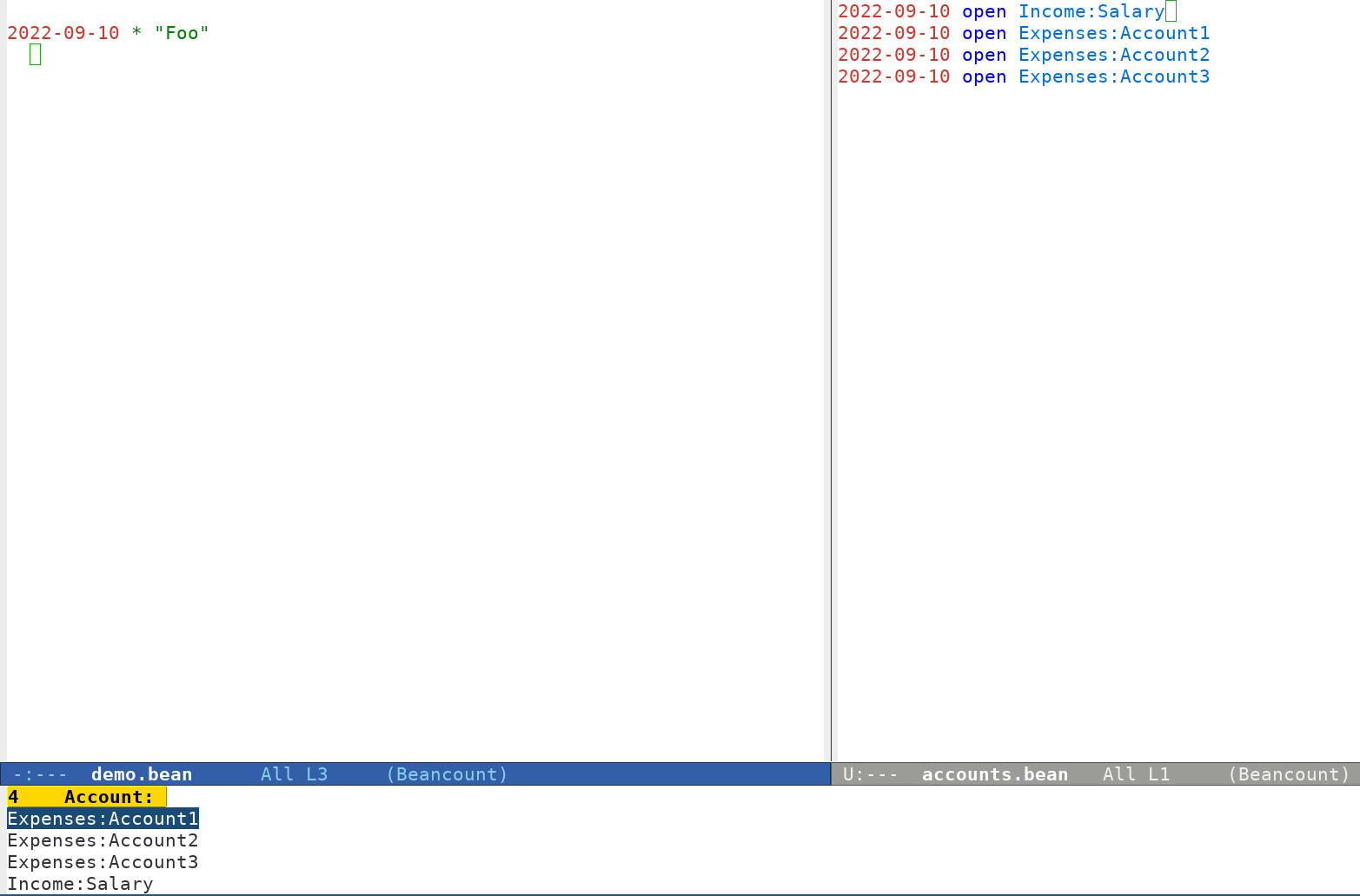
If you're using Beancount with Emacs, you may be using beancount-mode. It can auto-complete the accounts defined in the current buffer when we are typing in new transactions so that we can do it more efficiently.
But it can only auto-complete the accounts from the current buffer, which makes it less useful when we have a stand-alone file or a few files of beancount accounts.
BTW, I'm improving my English by watching YouTube videos every single day; If you're also learning English, or any languages, LanguagePuppy can definitely help you. It's a Chrome extension I developed using Clojure. Check it out:
Install LanguagePuppyBased on cnsunyour's fork, here is how to also auto-complete accounts from other files using the advice mechanism of Emacs:
(defvar beancount-account-files nil
"List of account files")
(defun w/beancount--collect-accounts-from-files (oldfun regex n)
(let ((keys (funcall oldfun regex n))
(hash (make-hash-table :test 'equal)))
(dolist (key keys)
(puthash key nil hash))
;; collect accounts from files
(save-excursion
(dolist (f beancount-account-files)
(with-current-buffer (find-file-noselect f)
(goto-char (point-min))
(while (re-search-forward beancount-account-regexp nil t)
(puthash (match-string-no-properties n) nil hash)))))
(hash-table-keys hash)))
(advice-add #'beancount-collect
:around #'w/beancount--collect-accounts-from-files
'((name . "collect accounts from files as well")))
Put the code in your "init.el", and then define your account files by, for example, (setq beancount-account-files '("/path/to/accounts.bean")). Now it will work perfectly when you M-x beancount-insert-account (Revert the current beancount buffer to make the advice effective if necessary).
P.S. If you prefer not to use the ido style to auto-complete the accounts, you can (setq beancount-use-ido nil) so that a completion frontend like ivy will have the chance to take control.